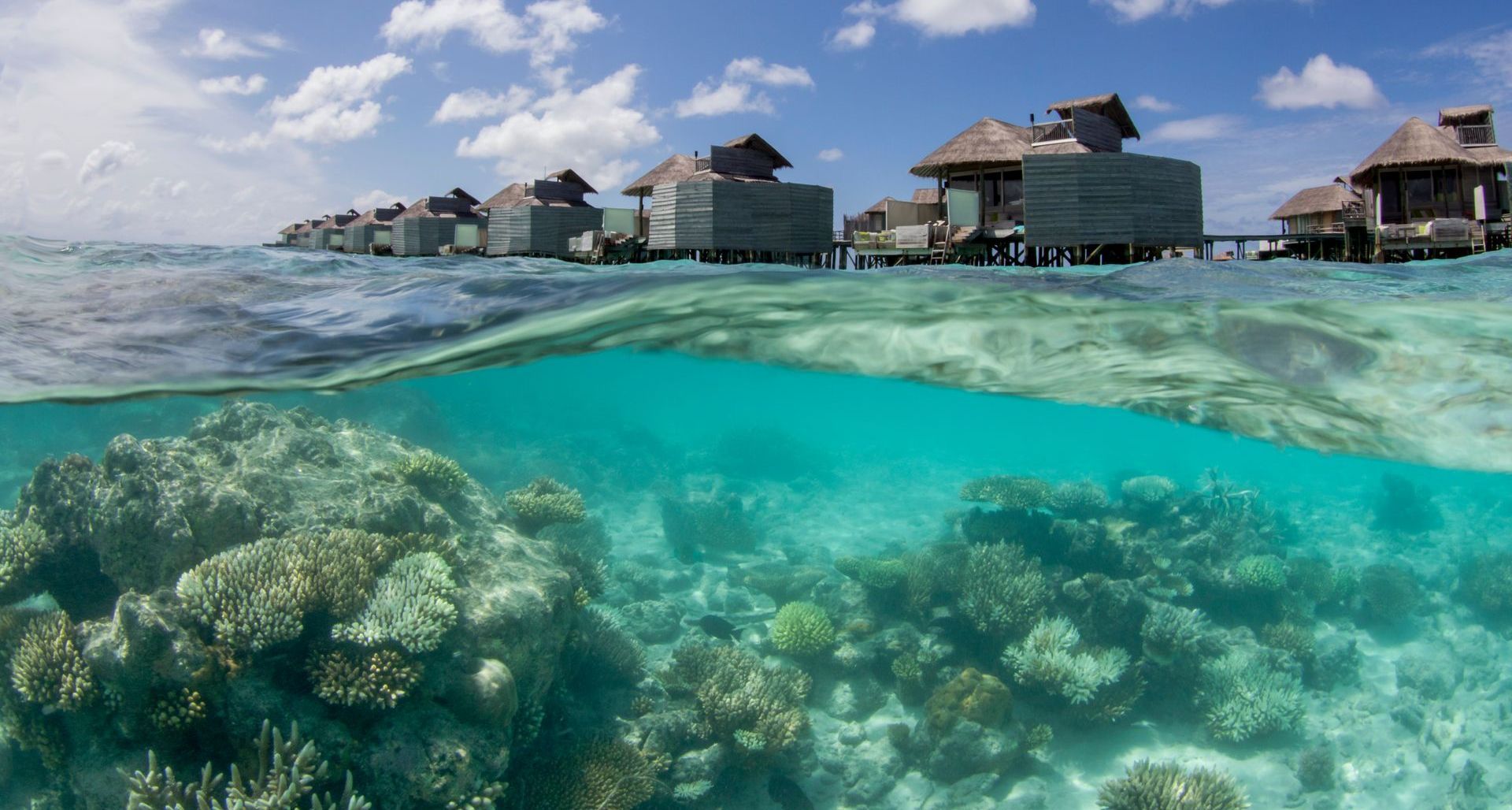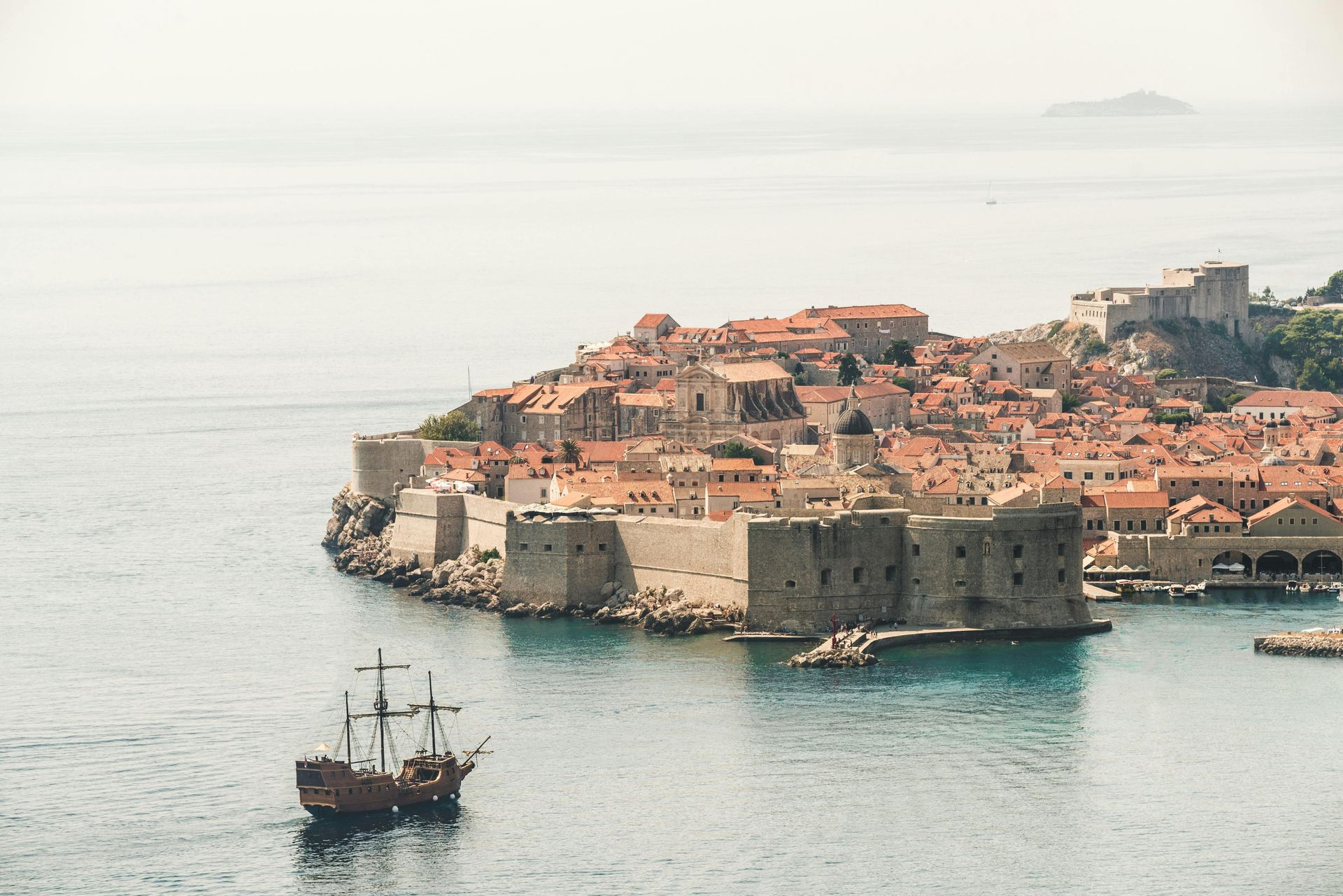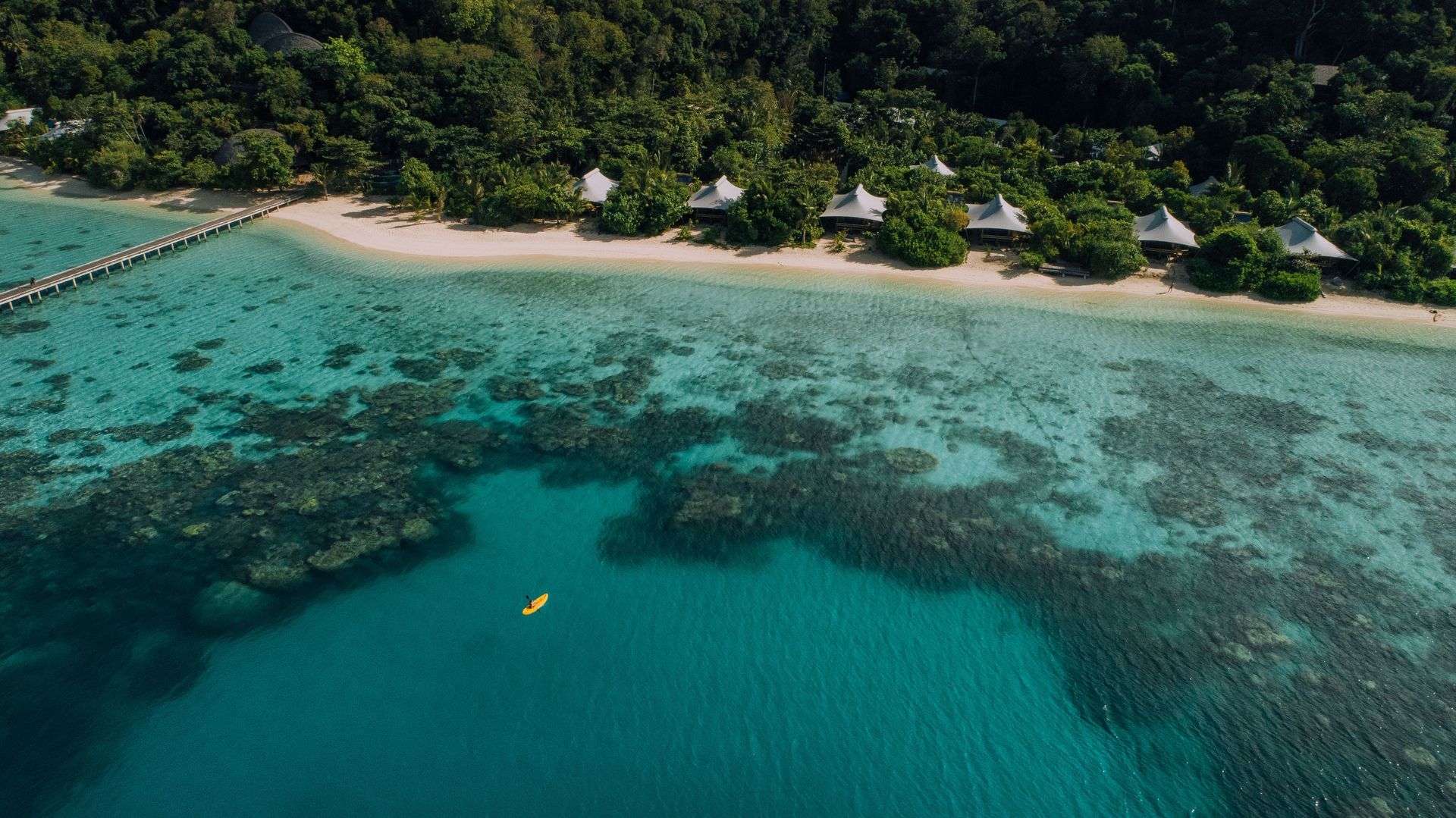The Ocean Crisis: Are Hoteliers Ready to Save Our Oceans?
In today's hospitality industry, the relentless pursuit of profit often eclipses the critical need for sustainable practices. However, a monumental shift is urgently needed. Our oceans, the lifeblood of the planet, are in peril, and the repercussions of inaction will be devastating for the environment and our industry. This is not just about altruism—it's about survival and seizing a strategic advantage. Investing in sustainable solutions for our oceans is a business imperative that aligns with environmental stewardship and economic prosperity.

Hoteliers, the time to act is now. By embracing renewable energy, implementing eco-friendly practices, and championing marine conservation, you can drastically reduce your environmental footprint. This proactive approach not only protects our invaluable marine ecosystems but also taps into a burgeoning market for sustainable tourism. The rewards are abundant: enhanced brand reputation, increased resilience to market shifts, and, ultimately, greater profitability.
The stakes are high, but the opportunity is immense. The future of hospitality depends on the choices we make today.
Why Hoteliers Should Care?
Oceans are not merely a backdrop but a vital asset to the hospitality industry. Thriving oceans underpin robust tourism, a sector providing one in every ten jobs worldwide. By safeguarding invaluable ecosystems, hoteliers can champion significant environmental gains while bolstering the sustainability of their enterprises.
Enhanced Destination Appeal: Pristine ocean environments and healthy marine life directly contribute to the attractiveness of coastal destinations. Guests are more likely to visit and return to hotels situated in areas known for their beautiful coastlines, clear waters, and vibrant marine ecosystems.
Reputation and Market Appeal: Discerning travellers increasingly value environmentally responsible companies. Demonstrating a commitment to ocean conservation can enhance a hotel's reputation and attract environmentally conscious travellers. Sustainable practices can also ensure compliance with current and future regulations, leading to significant cost savings.
Resilience Against Climate Change: Protecting marine ecosystems helps build resilience against climate change impacts, such as rising sea levels and extreme weather events. Healthy coral reefs and mangroves act as natural barriers, protecting coastal areas and reducing the risk of damage to hotel properties.
Corporate Social Responsibility: Demonstrating a commitment to environmental stewardship aligns with broader corporate social responsibility goals. This can improve relationships with stakeholders, including investors, employees, and the local community. Sustainable practices contribute to the long-term viability of both the hotel industry and the surrounding environment.
Changes to Make Today
While a few hotels around the world excel in regenerative practices, we need thousands of hotels making consistent, measurable, and meaningful efforts today. Here are actionable steps hoteliers can take, which, in the grand scheme of things, are straightforward to implement. Embracing them can help move beyond short-term gains to achieve lasting benefits.
Reduce Single-Use Plastics
We all know about the plastic problem, but are we really making a change? Despite efforts, the truth remains: single-use plastics are one of the primary pollutants in our oceans. Over 11 million tons of single-use plastics enter our oceans each year, causing immense harm to marine life and ecosystems. Shockingly, there is now six times more plastic than plankton in our oceans. While some countries strive to curb plastic waste domestically, a staggering portion from wealthier countries continues to be shipped overseas, often to Turkey, Vietnam and Malaysia, with dire repercussions. The handling of this imported waste in recipient countries falls woefully short, resulting in leakage into local waterways and, ultimately, the ocean. Recycling alone isn’t enough; we must drastically reduce our plastic consumption.
- Eliminate Single-Use Plastics: Replace single-use plastic items with reusable solutions. Stylishly designed refillable bottles can match any hotel’s luxury aesthetic. Offer exclusive, locally sourced, or organic toiletries in elegant dispensers to elevate the guest experience while reducing operational costs.
- Organise Regular Coastal Clean-Up: Engage employees in weekly coastal clean-ups to keep areas clean and prevent marine debris. Track, measure, sort, and repurpose the collected waste to make a tangible difference in the local community.
Respecting Marine Life
Human activities can seriously disrupt marine ecosystems. Noise pollution from cruising, shipping, and recreational water activities causes marine life to avoid their natural habitats, increasing competition for resources and reducing reproductive success. Motorised water sports, like jet skiing, not only add to noise pollution but also cause significant environmental damage. For instance, a typical diesel jet ski emits about 110 kilos of emissions in just one hour — comparable to a single seat's carbon footprint on an international flight from London to Lisbon. Ocean acidification, driven by increased carbon dioxide absorption, is another pressing issue. Given that most hotel guests generate substantial carbon emissions travelling to glamorous hotels, it’s essential to reduce emissions during their stays. Sunscreen pollution also poses significant threats. Ingredients like oxybenzone and octinoxate contribute to coral bleaching and can harm marine life. Moreover, garden fertilisers and hazardous cleaning chemicals often end up in the ocean, further damaging ecosystems.
- Promote Marine-Friendly Water Activities: Eliminate motorised water sports and instead offer non-motorised options like snorkelling, kayaking, and paddle-boarding. These activities have a much lower environmental impact.
- Minimise Light and Noise Pollution: Reduce artificial lighting and noise in coastal areas to avoid disturbing nocturnal marine life and nesting sites for species like sea turtles.
- Encourage Use of Reef-Safe Sunscreen: Inform guests about the importance of using 'reef-safe' sunscreen in pre-arrival communications. Provide reef-safe sunscreen in hotel shops along with UV-protective clothing, hats, and sunglasses. Display educational materials in guest rooms and communal areas about the impact of conventional sunscreens on marine life.
- Use Eco-Friendly Chemicals: Conduct an audit of all chemicals used in your hotel. Switch to eco-friendly alternatives for garden fertilizers and cleaning products.
Support Sustainable Seafood
Overfishing is depleting fish populations and disrupting marine ecosystems. An estimated 90% of global fish stocks are over-exploited, and about 90% of large fish have vanished from our oceans. The hospitality industry, especially hotels in tourist destinations, significantly contributes to this problem by catering to guests' demand for fresh, local seafood. This high demand pressures local fish populations and drives unsustainable fishing practices, further exacerbating the depletion of marine resources.
Mass tourism compounds the issue. Increased waste, pollution, and habitat destruction from tourism infrastructure harm marine life. The construction and operation of hotels can destroy vital marine habitats, stressing ecosystems even more. Overfishing not only reduces fish numbers but also disrupts the delicate relationships that sustain marine biodiversity. Just as bees pollinate plants on land, certain marine species play crucial roles in underwater ecosystems. Overfishing threatens these 'pollinators' which impacts the entire marine food web.
Protecting marine areas from overfishing is vital for preserving the intricate web of life that supports ocean health. Ensuring the survival of these underwater pollinators helps maintain marine ecosystems' resilience and productivity, crucial for the planet's overall environmental balance.
True luxury now encompasses responsibility, going beyond mere indulgence. The old belief that hotels should offer anything regardless of environmental impact is no longer acceptable. While exotic foods have traditionally featured on luxury hotel menus, it is now crucial to adopt a different approach. Prioritizing locally sourced dishes and celebrating the unique flavours and traditions of each destination can significantly reduce the carbon footprint. For example, hotels located near the ocean should serve fresh, locally caught fish instead of imported varieties.
- Prioritise Sustainable Seafood: Support local fishermen and reduce the carbon footprint by featuring dishes sourced locally and celebrating the flavours and traditions of each destination.
- Avoid Overfished Species: Avoid purchasing overfished species. Collaborate with local fishermen to ensure sustainable practices by having them sign a code of conduct.
- Incentivise Sustainable Fishing: Support local fishers by purchasing their catch at a fair price and offering a points-based benefits scheme to encourage sustainable fishing practices.
Educate and Raise Awareness
Understanding the Problem: As the saying goes, 'You don't know what you don't know'. Spreading awareness about ocean issues is key to driving change. Educate yourself and others about ocean conservation and share information widely to inspire action.
Support Legislation: Legislation is pivotal in safeguarding our oceans. Support policies that prioritise marine conservation by signing petitions and voting for leaders who champion environmental issues. Additionally, contribute to or volunteer with reputable ocean conservation organisations. Supporting initiatives like mangrove conservation, which is crucial for coastal protection and marine biodiversity, allows you to actively participate in preserving our precious marine ecosystems.
- Update Sourcing Policies: Review and revise your hotel's sourcing policies to prioritise sustainable and eco-friendly products. Focus on items with minimal packaging and locally sourced.
- Educate the Community: Arrange for your employees to visit local schools and community groups to educate them about ocean conservation and sustainable practices. This helps raise awareness and encourages sustainable behaviours in the wider community.
- Advocate for Ocean-Friendly Policies: Encourage guests to read and sign a pledge upon check-in, committing to support ocean conservation efforts during their stay. By involving guests, you create a collective impact on protecting marine ecosystems.
- Engage Guests: Provide materials in guest rooms and communal areas that explain the importance of ocean conservation and how they can help. Offer interactive experiences, such as eco-tours and mangrove planting or seagrass restoration, to involve guests directly in conservation efforts.
Conclusion
The journey towards sustainability in the hospitality industry, particularly concerning ocean conservation, is neither swift nor solitary. It requires a collective effort, with each hotel playing its part as a steward of the environment. While implementing sustainable practices may not transform a hotel into a paragon of sustainability overnight, each step taken moves the needle towards greater responsibility and accountability. It's essential to recognise that change begins with champions within the industry who are willing to lead by example and inspire others to follow suit. By consistently measuring progress and investing in further sustainable initiatives, hotels can demonstrate the tangible impact of their actions and pave the way for a more sustainable future. Let us remember that while the path may be challenging, the rewards — both for our planet and our businesses — are immeasurable. Together, let's turn the tide and safeguard our oceans for generations to come.
Looking for more? Here are some great resources and articles on better travel choices to get you started:
Restoring our Reef BBC documentary
https://www.youtube.com/watch?v=vkDNYZXZ7Fo
Fresh Water availability and Its Global challenge
https://bjmas.org/index.php/bjmas/article/view/455
Sunscreen pollution and tourism governance: Science and innovation are necessary for biodiversity conservation and sustainable tourism
https://onlinelibrary.wiley.com/doi/full/10.1002/aqc.3791
Bringing sustainable seafood from fishers to hotels
https://wwf.panda.org/wwf_news/?249114/Bringing-sustainable-seafood-from-fishers-to-hotels
How can hotels protect local biodiversity and help maintain a healthy ecological balance where they operate?
Sea animals may play a role in the reproductive cycle of macroalgae
https://thefishsite.com/articles/sea-animals-may-play-a-role-in-the-reproductive-cycle-of-macroalgae











